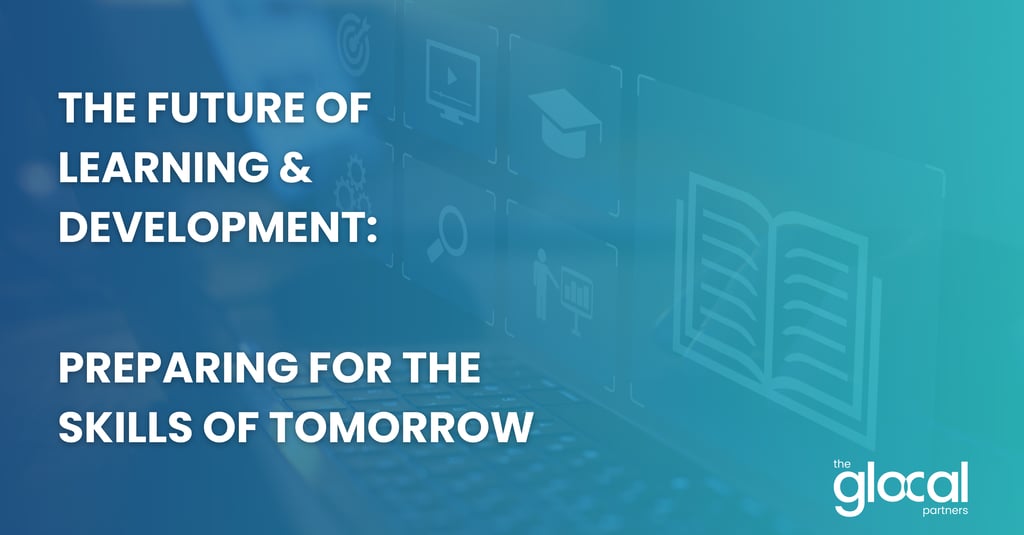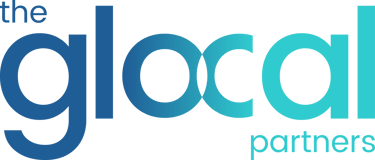The Future of Learning & Development
Preparing for the Skills of Tomorrow
The Glocal Partners
5/27/20252 min read


As technological advancement accelerates and job roles continuously evolve, organizations face unprecedented challenges in maintaining a workforce equipped with relevant skills and competencies to drive competitive advantage in rapidly changing markets.
Key Challenges in Future Skills Development:
Skills Obsolescence Acceleration -- According to the World Economic Forum's Future of Jobs Report (2023), 44% of workers' core skills will be disrupted in the next five years, with technical skills having an average half-life of just 2.5 years, drastically shortening the utility timeframe of traditional training programs.
Emerging Skills Identification Gaps -- Deloitte's Global Human Capital Trends Survey (2023) found that 71% of organizations lack effective systems to predict future skill requirements, creating reactive rather than proactive development approaches.
Learning Agility Deficiencies -- McKinsey's Workforce Skills Study (2022) reveals that only 28% of employees demonstrate high learning agility, the meta-skill essential for continuous adaptation, limiting organizational capacity to pivot during market shifts.
Scale and Personalization Tension -- LinkedIn Learning's Corporate Development Benchmark (2023) indicates that 83% of L&D professionals struggle to balance the need for enterprise-wide skill development with increasingly necessary personalized learning pathways.
Strategic Solutions for Future-Ready Development:
Implement dynamic skills intelligence systems using AI-powered labor market analysis, internal capability tracking, and industry trend monitoring to create continuously updated skills forecasts, as recommended by the Association for Talent Development's Skills Anticipation Framework.
Develop learning ecosystem architectures combining formal training, on-demand resources, peer learning networks, and external partnerships that create multiple, flexible pathways to skill acquisition, following Josh Bersin's Learning Ecosystem Model.
Create learning agility acceleration programs emphasizing experimentation, reflection, connection-making, and perspective-shifting as foundational capabilities, using the Center for Creative Leadership's Agility Development Methodology.
Establish AI-enabled learning experience platforms delivering personalized development recommendations, adaptive learning pathways, and nudge-based engagement strategies at scale, utilizing the Learning Systems Guild's Adaptive Development Architecture.
Key Takeaway
According to Boston Consulting Group's Future Skills Investment Study (2023), organizations with mature future skills development capabilities achieve 37% higher innovation rates, 28% better talent retention, and 42% faster response to market changes compared to companies with traditional training approaches, resulting in 3.5x higher shareholder returns over a five-year period as workforce capability evolution outpaces market disruption.
Book a Free Session with The Glocal Partners to discuss more details!
References:
World Economic Forum. (2023). Future of Jobs Report. https://www.weforum.org/reports/the-future-of-jobs-report-2023
Deloitte. (2023). Global Human Capital Trends Survey. https://www2.deloitte.com/global/en/insights/focus/human-capital-trends-2023
McKinsey & Company. (2022). Workforce Skills Study. https://www.mckinsey.com/business-functions/people-and-organizational-performance/our-insights/workforce-skills-study-2022
LinkedIn Learning. (2023). Corporate Development Benchmark. https://learning.linkedin.com/resources/corporate-development-benchmark-2023
Boston Consulting Group. (2023). Future Skills Investment Study. https://www.bcg.com/publications/2023/future-skills-investment-study
theglocals@theglocalpartners.com
© 2026. All rights reserved.
This website is Powered by: The Glocal Partners LLC
